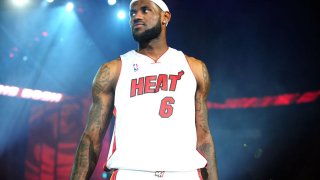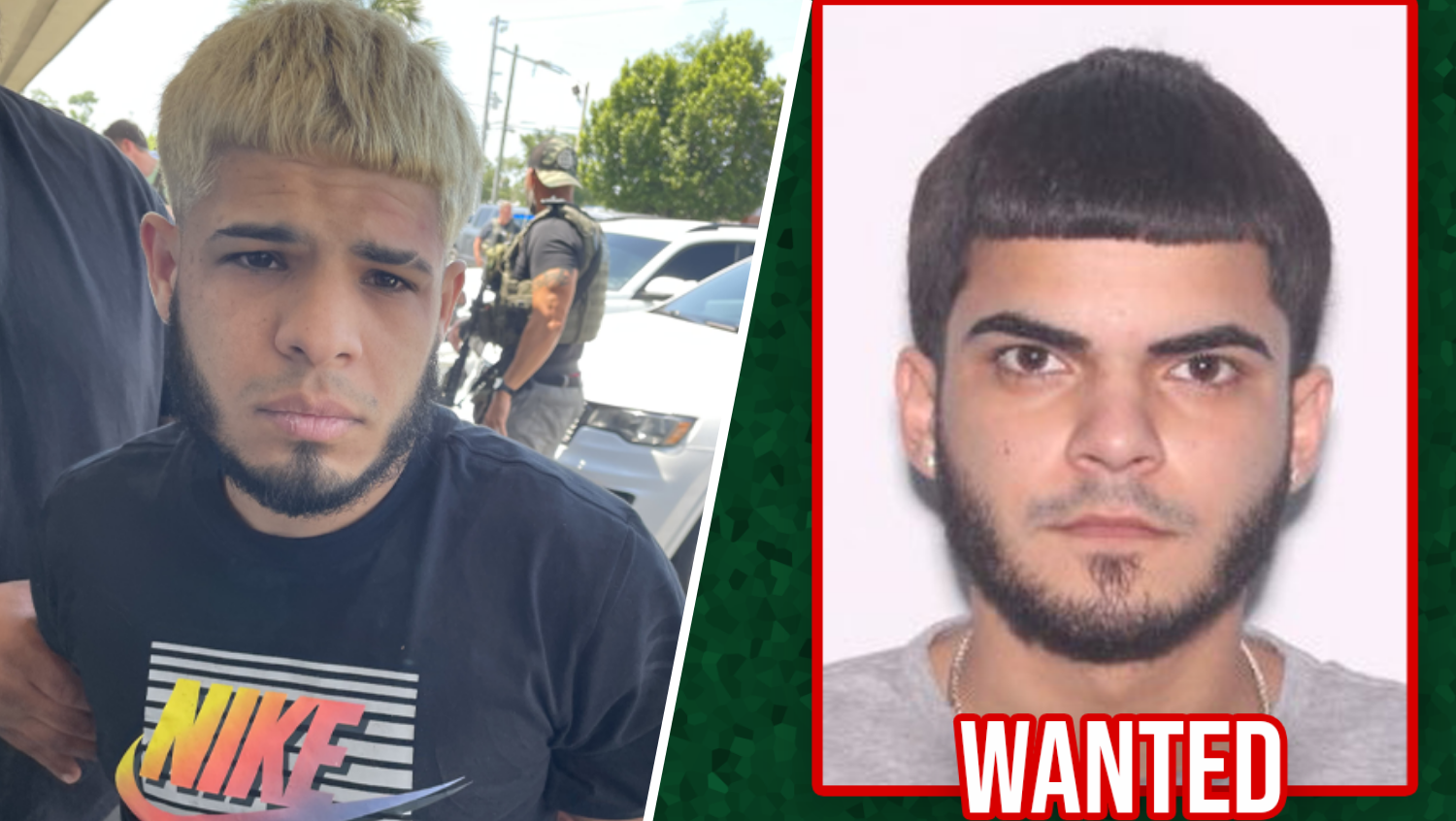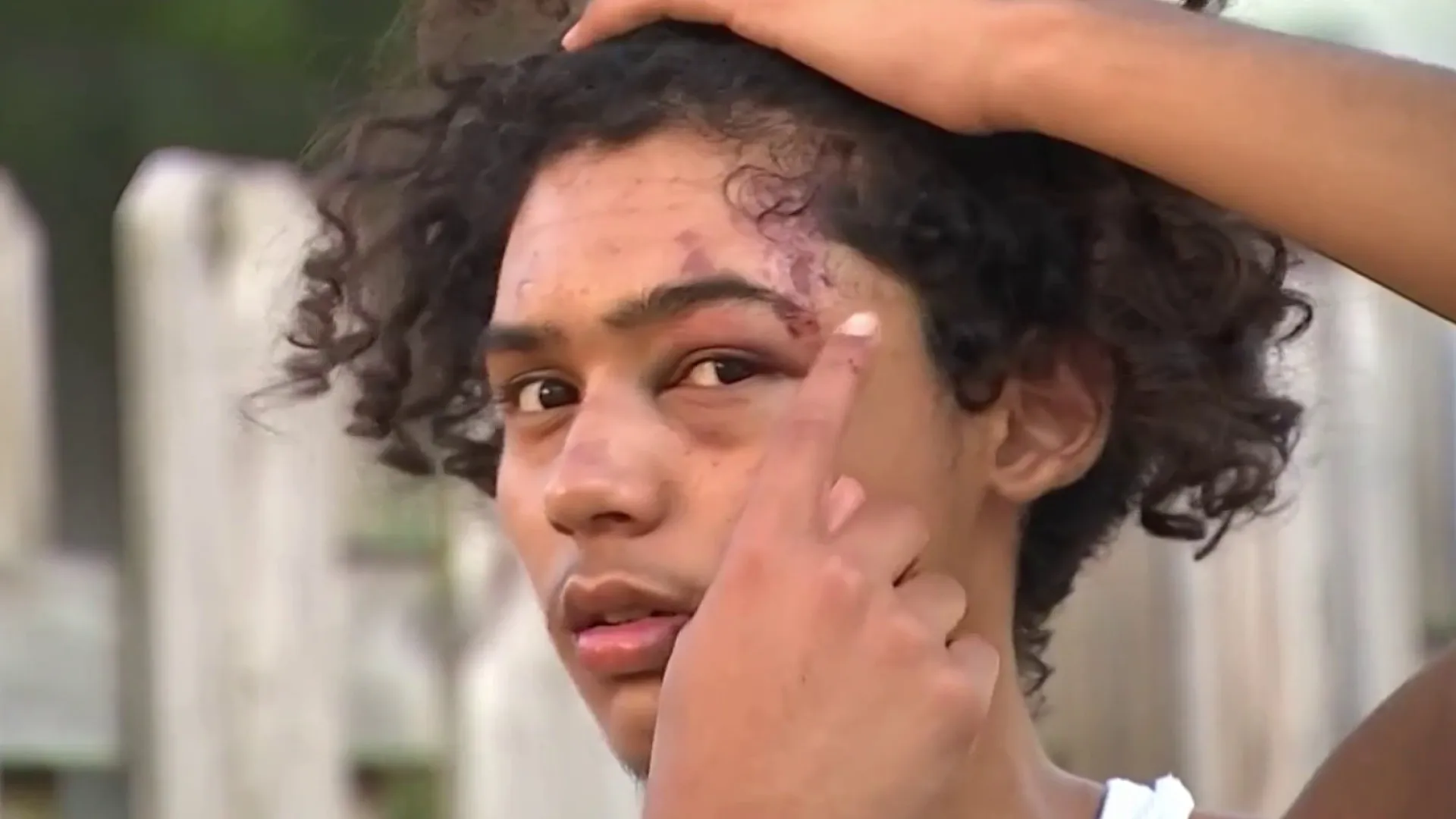
Ten years ago, the world of basketball free agency and sports as a whole changed with just 17 simple words spoken by then-free agent NBA forward LeBron James.
In front of a crowd of teenagers inside of a facility in Connecticut and a national television audience, James said one sentence that would change the fortunes of professional basketball - and South Florida.
“In this fall, I'm going to take my talents to South Beach and join the Miami Heat,” James said during 'The Decision', a TV special created at the end of nearly two months of visits from various teams and speculation about where the former Cleveland Cavaliers star was going to land next.
“As soon as he said he was taking his talents to South Beach, we all screamed and high-fived each other,” said NBC 6 reporter Ari Odzer, a Heat season ticket holder for over two decades. “The next day, there was a buzz around South Florida, an incredible amount of anticipation and excitement, from talk radio to TV news to the newspapers to conversations among people who didn’t follow basketball that were suddenly interested in the Miami Heat.”
It was a buzz that was needed for a Heat team who, despite winning their first NBA championship in the 2005-06 season, had spent the next four seasons being knocked out in the first round of the playoffs three times and finishing one season with 15 wins - tied for the lowest in franchise history.
The next day after the televised spectacle, James was joined on stage at the AmericanAirlines Arena with fellow free agent signees Chris Bosh and Dwyane Wade – the man who won the Finals MVP during Miami’s first championship run.
“The Heat basically held a championship party before they played a single game. Heat fans loved it and everyone else hated it. But that’s because they were jealous,” said former NBC 6 sports anchor Adam Kuperstein, who was at the arena for the event.
Local
LeBron would ruffle more feathers by famously saying the Heat would win multiple championships with his now famous “not three, not four, not five” speech.
“It was surreal. I still think that was the loudest I’ve ever heard the AAA and then the players were handed microphones and of course they started boasting,” said Kuperstein, now an anchor with WNBC-TV in New York City. “In the moment…it sounded totally plausible. It wasn’t until the euphoria settled that we realized what that phrase would become.”
“I immediately thought it was the wrong thing to say only because I’m superstitious and I figured he was jinxing us,” Odzer said. “It was said partly in jest, but the rest of the nation saw that and ‘Heat Hatred’ became a real thing. You were either a Heat supporter or a Heat hater from that point on.”
It was a much-needed moment for the city of Miami as well, still working to recover from the recent economic woes that swept the county. The trio of stars made Heat games a must see attraction.
“I think it changed South Florida. Having the best player in the world in his prime and the excitement and drama that came with it, introduced the NBA to a whole new group of South Florida fans,” Kuperstein said. “People who never watched basketball before had a reason to tune in.”
There were plenty of reasons for those outside of Miami to hate over the next four seasons. Miami would advance to the NBA Finals each time, tying the record for the third longest streak of consecutive appearances in the sport’s history.
Over the four seasons of the ‘Big Three’ era, the Heat won a total of 224 games that included a 27 game winning streak during the 2012-13 season – the second longest in the history of the NBA. But, with all the good came the pressure of expectations the team had to deal with.
“Every move they made was over-scrutinized. Every game was over-analyzed. I enjoyed covering the circus that it became, but it wasn’t without challenges,” said Kuperstein. “The players were understandably wary of reporters, and therefore it sucked some of the fun out of the locker room, especially in the first two years.”
Though the Heat would lose the first of those appearances in 2011 to the Dallas Mavericks, Miami would win two straight championships with victories in 2012 over the Oklahoma City Thunder and the following season against the San Antonio Spurs - a victory highlighted by Ray Allen’s Game Six miracle shot that saved Miami’s title hopes and forced a Game Seven that the Heat would ultimately win.
“The next day, I found myself on the court interviewing players about the amazing moment we had all witnessed the night before. It was surreal for me,” Odzer said. “Watching various players reenacting Allen’s shot, seeing (Spurs head coach) Gregg Popovich with his arm around Tim Duncan still distraught from the loss. It’s a terrific memory for me.”
Miami’s title run would end in a rematch against the Spurs, which San Antonio would win in five games to finish the 2013-14 season. James would ultimately opt out of his contact with Miami and return to his roots in his native northeast Ohio and rejoin the Cavaliers. This time, after backlash from 'The Decision', he did so in a simple article posted online.
“The down side of that era was the championship-or-bust mentality which gripped the team and the fans,” Odzer said. “The pressure on the players was immense. Anything but a title was considered failure and that, I believe to this day, is the real reason LeBron went back to Cleveland.”
Miami has been back to the playoffs just twice in the five completed seasons since James left while also seeing Wade depart for over three seasons and Bosh having to retire early due to blood clots.
The biggest thing to come out of that moment a decade ago: players have taken over not just where they are going to play, but how they want to make it known - with no care how much backlash they may get.
“I think 'The Decision’ marked the beginning of the player power era,” Kuperstein said. “Superstars especially started to take advantage of their leverage and demand larger salaries, or specific teammates. It launched the super team era, which some may argue was bad for parity but it led to some really memorable championship runs.”



